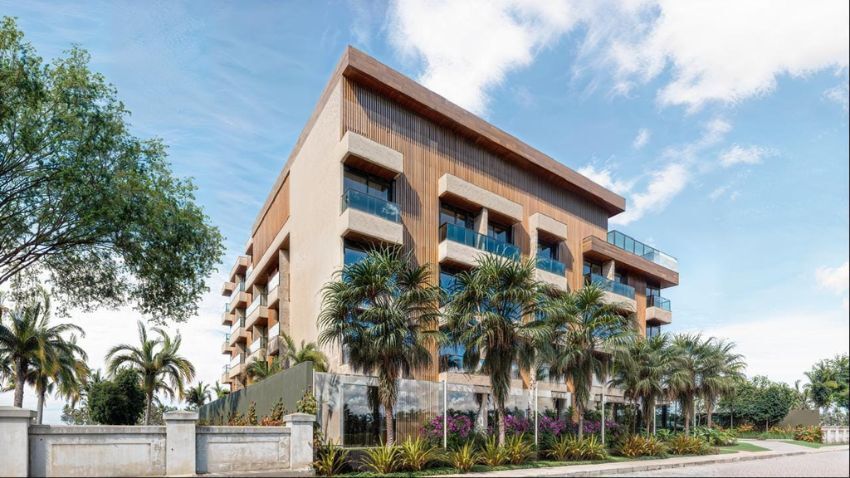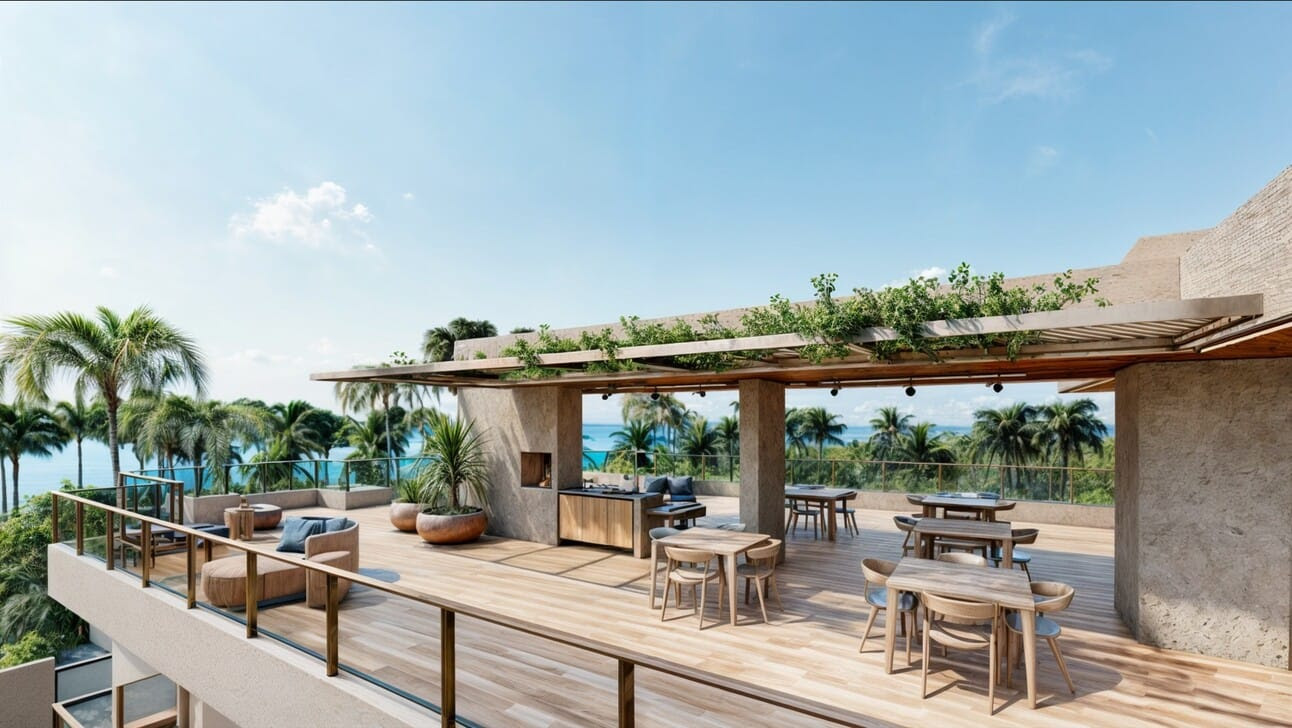Why I Own Real Estate in Multiple Countries...
Over the years, I’ve built a portfolio of real estate across numerous countries - not just as investments but as strategic tools to ensure freedom,...

As you consider venturing into the Brazilian market, it's essential you grasp the importance of integrating into the local business culture, which treasures personal relationships and trust. You'll find that partnering with local entities not only eases your entry but also anchors your business with local credibility that's hard to achieve solo. Tailoring your products to align with Brazilian tastes can greatly boost your acceptance. Yet, the intricacies of the Brazilian regulatory environment remain a complex puzzle. How do you navigate these regulations without stumbling? This question is vital for your strategy, and the answer might surprise you.
Partner with local entities to gain market insights and enhance credibility.
Customize products to reflect local tastes and cultural preferences.
Conduct thorough market research to identify consumer needs and market trends.
Build strong personal relationships to foster trust and loyalty.
Navigate the Brazilian regulatory framework to ensure compliance with local laws.

Embracing Brazilian business culture involves building strong personal relationships and valuing trust and loyalty. As a foreign company looking to enter the Brazilian market, you'll find these elements are cornerstones in your interactions. Establishing a genuine connection goes beyond mere business transactions; it's about showing commitment and respect to your Brazilian counterparts.
Understanding 'jeitinho brasileiro,' or the Brazilian way of maneuvering through rules with flexibility and cunning, is essential. This cultural nuance often reflects an adaptable approach to problem-solving, one that values relational over procedural dynamics. It's not about cutting corners; rather, it's about understanding the importance of relationships in overcoming obstacles.
Punctuality may not be as stringent in Brazil as you're accustomed to. Meetings might start later than scheduled, reflecting a more relaxed attitude toward time. This flexibility is a part of the broader informality you'll encounter. Embrace this aspect, as it often leads to warmer, more open communication styles.
In your interactions, prioritize warmth and directness—qualities that enhance trust and foster loyalty. Remember, in Brazil, how you communicate often matters just as much as what you communicate.
Partnering with local entities in Brazil can greatly streamline your market entry and enhance your understanding of the local business landscape. When you're considering entering the Brazilian market, aligning with a Brazilian company offers invaluable insights into the regulatory framework and cultural specifics that define the local market. This strategy not only mitigates potential risks but also boosts your company's credibility among local customers and stakeholders.
Collaborating with established partners can facilitate a smoother navigation through Brazil's complex business environment, enhancing your potential for success. A joint venture, for example, allows you to leverage the established presence and distribution networks of a local entity, accelerating your market penetration and driving business growth.
Moreover, such partnerships can be a critical component of your market entry options, empowering your business through local expertise and connections. This approach can significantly enhance Foreign Direct Investment by offering a more nuanced and effective engagement with the market. Remember, the right local ally can transform your market entry strategy from a mere possibility to a substantial success story in Brazil.

To successfully enter the Brazilian market, you'll need to customize your products to meet local tastes and preferences. This involves not just exploring your product lineup but immersing deeply into the cultural nuances that define consumer behaviors here. By customizing products specifically for the local Brazilian market, such as adapting packaging, labeling, and branding, you're more likely to resonate with customers.
Understanding and integrating these local preferences into your product design and marketing strategies is key. It's not just about translation; it's about transformation. Localization goes beyond the superficial aspects of a product and investigates the core features that appeal to Brazilian consumers. This approach not only enhances market penetration but also builds a foundation for long-lasting customer loyalty.
Before entering Brazil's market, you must conduct comprehensive market research to understand the specific needs and preferences of your target audience. This step is essential as it helps tailor your business strategies to meet local needs and stand out amidst competitors.
Conducting market research isn't just about knowing who to sell to but also understanding how to communicate your message. You'll need to explore cultural nuances that could affect consumer behavior and preferences. Additionally, keeping an eye on market trends will provide insights into what's currently in demand and what might be expected in the future.
Here's a breakdown of key areas to focus on during your market research:
| Area to Explore | Purpose | Impact on Strategy |
| Target Audience Demographics | Tailor products/services to fit local preferences | Enhances product relevance and appeal |
| Competitors' Strategies | Identify gaps and opportunities in the market | Enables differentiation |
| Cultural Nuances | Effective communication and marketing | Increases consumer engagement |

Understanding Brazil's regulatory framework is essential for legally operating your business in the country. As you plan your market entry strategies, it's important to grasp the intricacies of compliance with Brazilian laws to avoid costly fines and penalties. You'll need to navigate labor regulations, ensuring fair treatment and appropriate wages for your employees. Tax regulations also require careful attention; they can be complex, and missteps might lead to significant financial penalties.
Moreover, Brazil places a strong emphasis on environmental protection. Adhering to environmental regulations isn't only a legal requirement but also a critical part of maintaining your company's reputation. Additionally, trade regulations must be followed to make certain that your import and export activities are up to standard.
To effectively manage these challenges, you'll benefit immensely from local expertise. Partnering with knowledgeable local advisors or hiring experienced local staff can provide the guidance necessary to navigate the regulatory landscape. They'll help you understand the specific requirements and processes, ensuring your business remains compliant and can thrive in the Brazilian market. Don't underestimate the complexity of the Brazilian regulatory framework; it's an important step in your journey to business success in Brazil.
You've got what it takes to succeed in Brazil! Remember, immersing yourself in Brazilian business culture is key.
Forge strong relationships and partner with local firms to gain invaluable insights and trust. Customize your products to cater to local preferences, ensuring they resonate with your target audience.
Don't skip on thorough market research; it's your roadmap to understanding the market dynamics. Finally, adeptly navigate the regulatory landscape to avoid pitfalls and streamline your operations.
Here's to your success in Brazil!


Brazil Beachfront is your trusted source for uncovering the incredible opportunities along Brazil’s breathtaking Northeastern coastline. With Brazil’s economy on the rise and its middle class growing rapidly, the market offers an undeniable upside for offshore investors.
The newsletter also showcases past projects, providing readers who have purchased real estate with detailed construction updates to keep them informed every step of the way. From the lifestyle appeal of Brazil’s pristine beaches to the financial advantages of investing in this high-growth market, Brazil Beachfront delivers the insights and updates needed to capitalize on one of the world’s most dynamic real estate opportunities.

Over the years, I’ve built a portfolio of real estate across numerous countries - not just as investments but as strategic tools to ensure freedom,...

Every week, I bring you deals, insights, opportunities and off-market projects that nobody else has access to……and many of you assume it’s because I...

If you were to visit Porto das Dunas today, you would feel something that is hard to capture in photos……it feels organized.Traffic flows smoothly....